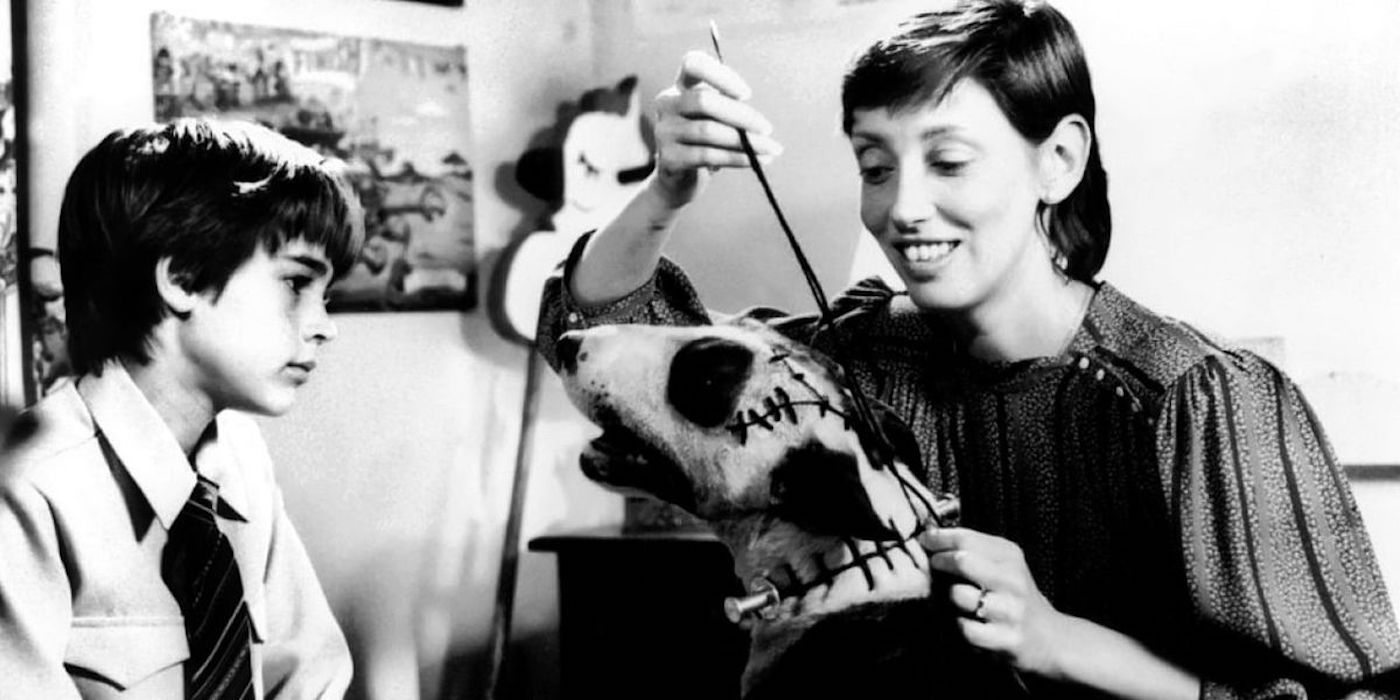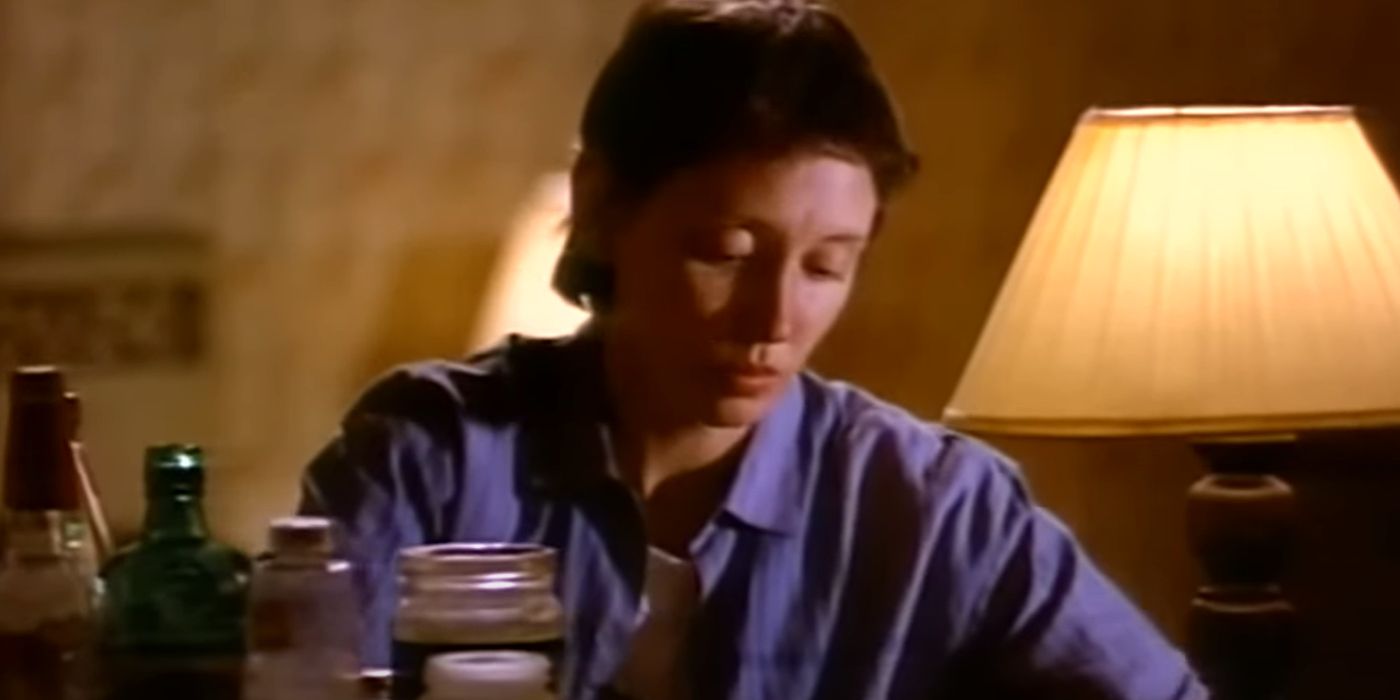The Big Picture
- Shelley Duvall’s performance in “A Saucer of Loneliness” is emotionally impactful and showcases her versatility as an actress.
- Her character, Margaret, battles against societal expectations and her own intense vulnerabilities, as the lonely woman is thrust into the public eye.
- The episode ends with a poignant revelation that provides solace to Margaret’s sense of loneliness.
May Shelley Duvall (1949-2024) rest in peace. As fans revisit Duvall’s catalog of work in remembrance, they should be sure to include what is perhaps her most heart-breaking performance. In the 1980s Twilight Zone episode, A Saucer of Loneliness, directed by John D. Hancock, Duvall gives a legendary performance in a study of loneliness as Margaret. Her acting propels the entire episode, miring viewers in Margaret’s tragic sense of loneliness for nearly the whole episode. Duvall somehow accomplishes in twenty minutes what other actors sometimes can’t do in maudlin three-hour epics. Her role in this episode is akin to a stage performance. There are neither special effects nor the assistance of other actors (or even set design) to buttress Duvall’s acting. She grabs the audience’s hearts so convincingly precisely because there are no cinematographic trappings between her and the audience. It is this sense of intimacy with such a tragic character that makes this performance one of the most emotive in Duvall’s career.

The Twilight Zone (1985)
A collection of tales which range from comic to tragic, but often have a wicked sense of humor and an unexpected twist.
- Release Date
- September 27, 1985
- Creator
- Rod Serling
- Cast
- Robin Ward , Charles Aidman , William Atherton , Ellen Albertini Dow
- Main Genre
- Sci-Fi
- Seasons
- 3
Shelley Duvall Demonstrates her Versatility as an Actress in this Role
Although this role is less known than her portrayal of Wendy in The Shining, Duvall’s acting is far more dynamic. She does not simply scream at the screen; she brings the audience into the character’s psyche. In the first half of the episode, Margaret is her own worst enemy. She passively wallows in her isolation and actively tortures herself over it. The episode begins with Margaret’s night shift as a waitress ending. She despondently watches a co-worker’s boyfriend greet her warmly and then walks with another co-worker. Margaret laments that she has not found the companion she’s hoped for and, in fact, “can’t picture it anymore.” Even her dreams are fading.
To add insult to injury, when Margaret returns home, her mother scolds her for not having found a husband. Rather than assert her independence, Margaret meekly says, “I’m not that young.” Duvall portrays Margaret as a victim and perpetrator of her own misery. The cinematography, sparse in aesthetic as it is, captures this in the conclusion of what can be considered the first act. The audience watches Margaret sit on her bed and begin to weep, but the lighting depicts her as a silhouette. This symbolizes the invisibility that Margaret feels, which Duvall’s acting makes convincing. All this happens within three minutes, which is a testament to Duvall’s efficiency in introducing the character to viewers as she shows the depths of Mergaret’s character.
Margaret is Oppressed by Her Own Desires and the Expectations of Others
The tragedy continues. People finally take notice of Margaret once the saucer finds her, but they are not interested in her — only in learning what the saucer told her. To make matters worse, Margaret’s mother kicks her out of the house after ridiculing her for not finding a man “to take you off my hands.” Margaret is oppressed not merely by loneliness but also by the societal expectations of femininity. In this sense, Margaret’s character is similar to Duvall’s portrayal of Wendy in The Shining. Margaret doesn’t weep or shout after her mother banishes her, though. Instead, the audience is left to interpret Margaret’s emotions based solely on Duvall’s facial expression. The audience’s connection with the character rests entirely upon Duvall’s performance as a lonely woman who cannot fulfill her desires or live up to the expectations placed upon her.
The saddest moment in the episode occurs when Margaret goes on a date. A man asks her out at the restaurant, tricking Margaret by saying, “I used to notice you,” even before the saucer incident. He is taking advantage of her deepest insecurity of isolation. Once they’re on the date, Margaret quickly understands the man only wants to know what the saucer told her. This is a moment of nearly Shakespearean tragedy, wherein Margaret momentarily believes her dreams have finally come true, only to learn that her most vulnerable emotions have been taken advantage of. It is a moment of pathos when she tells her reflection in the mirror, “I hate you!” It is not even against people or society that Margaret directs her hatred, but herself, even though she has done no wrong.
Margaret Ultimately Learns She is Not Alone
After her failed date, Margaret attempts suicide by walking into the ocean at night. A man stops her, though, and she weeps, thinking he only saved her because he wants to know what the saucer told her. To Margaret’s surprise, the man reveals a paraphrased rendition of the message that Margaret wrote in bottles and threw into the ocean earlier in the episode. Perhaps the most poignant line as it relates to Margaret is, “In immensity, there’s one lonelier than you.” The tragedy is that Margaret finds consolation in knowing that her sense of loneliness was not only shared but perhaps surpassed by the saucer traveling through the expanse of the Universe.

Related
One of Shelley Duvall’s Best Performances Was in This Horrifically Delightful Tim Burton Movie
Duvall is a loving and open-minded mother in Burton’s 1984 short film.
The episode ends with a hint of romance as Margaret and the man walk happily down the beach together, but Duvall’s acting saves the episode from melodrama. It is more like a tragic play than anything else. By committing to Margaret’s melancholy, Duvall makes the ultimately happy ending of the episode transcend melodrama into a truly emotive moment. This performance is a testament to Duvall’s ability to evoke viewers’ emotions and deserves a high place in her legacy. Those interested in this episode may also be interested in reading the original short story by Theodore Sturgeon.
The Twilight Zone can be purchased on DVD on Amazon Prime in the U.S.
Purchase on Amazon Prime

